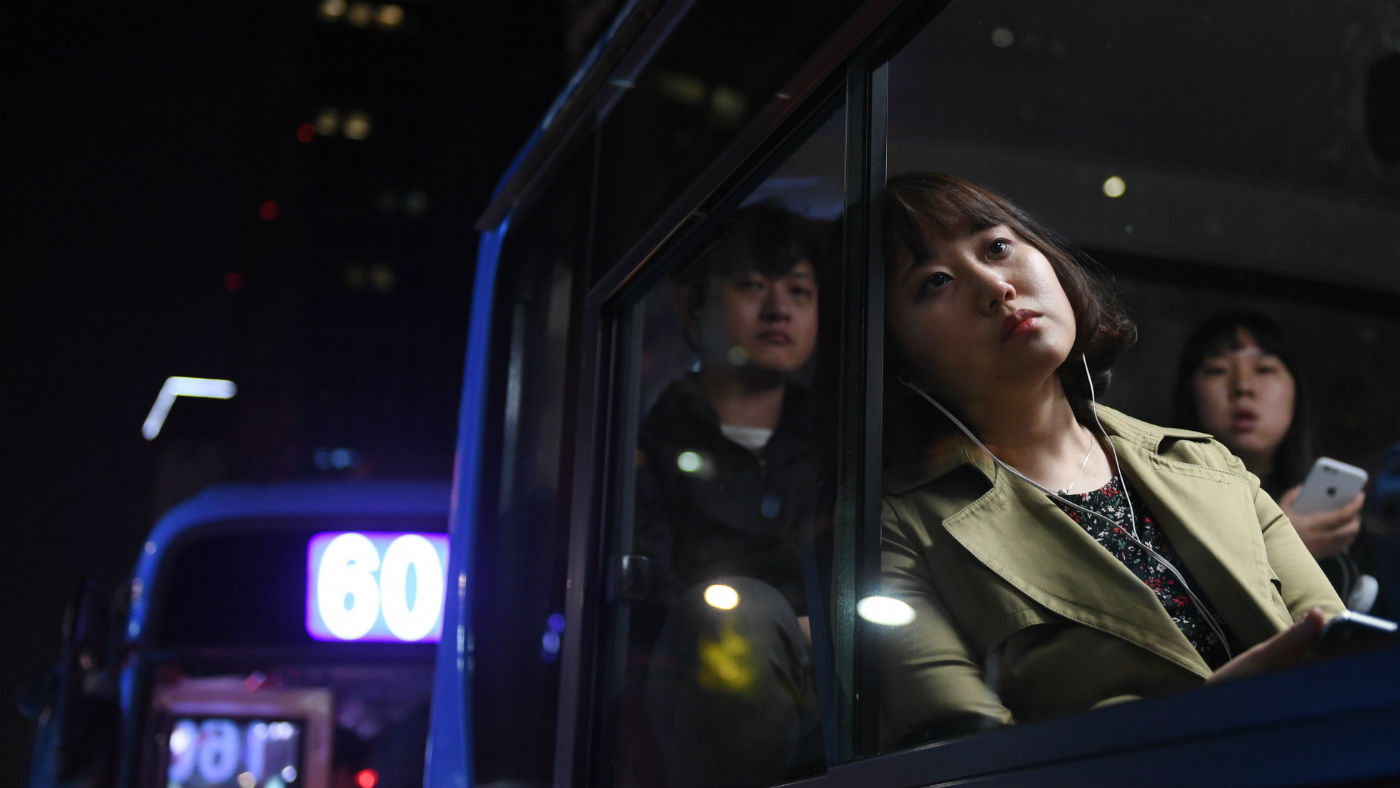‘Gwarosa’: why Koreans are working themselves to death
South Koreans work longer hours than almost any other OECD country

A free daily email with the biggest news stories of the day – and the best features from TheWeek.com
You are now subscribed
Your newsletter sign-up was successful
South Koreans have become the latest country to legislate against the phenomenon of “gwarosa” or “death by overwork”.
Among OECD countries, South Koreans work more hours per week on average than all but one other country, and almost 50% more than famously industrious Germany.
This has led to a huge spike in the number of people dying due to overwork, industrial accidents and sleep-deprived driving. While long considered a male problem, the number of women taking their own life due to overwork has also increased significantly in recent years.
The Week
Escape your echo chamber. Get the facts behind the news, plus analysis from multiple perspectives.

Sign up for The Week's Free Newsletters
From our morning news briefing to a weekly Good News Newsletter, get the best of The Week delivered directly to your inbox.
From our morning news briefing to a weekly Good News Newsletter, get the best of The Week delivered directly to your inbox.
Inc. magazine says “it's become such a readily observed phenomenon in countries like Japan, and more recently South Korea and China, terms have been created to describe it.”
In Japan, it's called karoshi - the literal translation is “death from overwork”. The Chinese use the term guolaosi, which refers only to overwork-induced suicide.
In South Korea, “where the work ethic is Confucian-inspired, and work usually involves six-day working weeks with long hours, the phenomenon is called gwarosa”, says the Japan Times.
Official figures reveal hundreds of workers died from overwork in 2017, prompting the South Korean government to pass a law reducing the maximum working hours from a staggering 68 per week to 40, with 12 hours of paid overtime.
A free daily email with the biggest news stories of the day – and the best features from TheWeek.com
President Moon Jae-in said the legislation would be an “important opportunity to move away from a society of overwork and move toward a society of spending time with families”.
However, a similar law introduced in Japan in 2014 aimed at preventing karoshi by reducing the number of employees working for 60 hours a week or more, was seen as “largely symbolic” and has done little to reduce the death rate, says the Japan Times,
Legal claims relating to karoshi, either as a result of suicide or poor health, rose to a record of 1,456 in 2016, The Daily Telegraph reports. The Japan Times says the number of cases submitted for compensation “has increased significantly in the past few years, [but] so has the number of court cases in which the government refuses to compensate the victims’ families”
“South Korean law does not officially recognize death by overwork” reports CNN, but the Korea Workers' Compensation and Welfare Service regards fatal heart attacks or strokes suffered while working more than 60 hours per week for three months as eligible for workplace death compensation, “funds from which can be a major help to families suddenly left without a breadwinner” reports the news network.
The problem itself could be more deep-rooted. While there is no term In Japanese for “work-life balance”, karoshi “is considered such an inevitable result of [the country's] notoriously gruelling work culture that it's hardly even discussed”, says The Independent.
-
 Political cartoons for February 12
Political cartoons for February 12Cartoons Thursday's political cartoons include a Pam Bondi performance, Ghislaine Maxwell on tour, and ICE detention facilities
-
 Arcadia: Tom Stoppard’s ‘masterpiece’ makes a ‘triumphant’ return
Arcadia: Tom Stoppard’s ‘masterpiece’ makes a ‘triumphant’ returnThe Week Recommends Carrie Cracknell’s revival at the Old Vic ‘grips like a thriller’
-
 My Father’s Shadow: a ‘magically nimble’ film
My Father’s Shadow: a ‘magically nimble’ filmThe Week Recommends Akinola Davies Jr’s touching and ‘tender’ tale of two brothers in 1990s Nigeria
-
 Epstein files topple law CEO, roil UK government
Epstein files topple law CEO, roil UK governmentSpeed Read Peter Mandelson, Britain’s former ambassador to the US, is caught up in the scandal
-
 Iran and US prepare to meet after skirmishes
Iran and US prepare to meet after skirmishesSpeed Read The incident comes amid heightened tensions in the Middle East
-
 Israel retrieves final hostage’s body from Gaza
Israel retrieves final hostage’s body from GazaSpeed Read The 24-year-old police officer was killed during the initial Hamas attack
-
 China’s Xi targets top general in growing purge
China’s Xi targets top general in growing purgeSpeed Read Zhang Youxia is being investigated over ‘grave violations’ of the law
-
 Panama and Canada are negotiating over a crucial copper mine
Panama and Canada are negotiating over a crucial copper mineIn the Spotlight Panama is set to make a final decision on the mine this summer
-
 Why Greenland’s natural resources are nearly impossible to mine
Why Greenland’s natural resources are nearly impossible to mineThe Explainer The country’s natural landscape makes the task extremely difficult
-
 Iran cuts internet as protests escalate
Iran cuts internet as protests escalateSpeed Reada Government buildings across the country have been set on fire
-
 US nabs ‘shadow’ tanker claimed by Russia
US nabs ‘shadow’ tanker claimed by RussiaSpeed Read The ship was one of two vessels seized by the US military